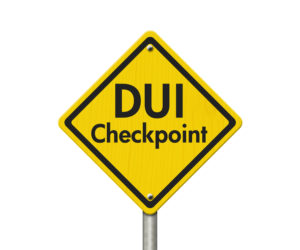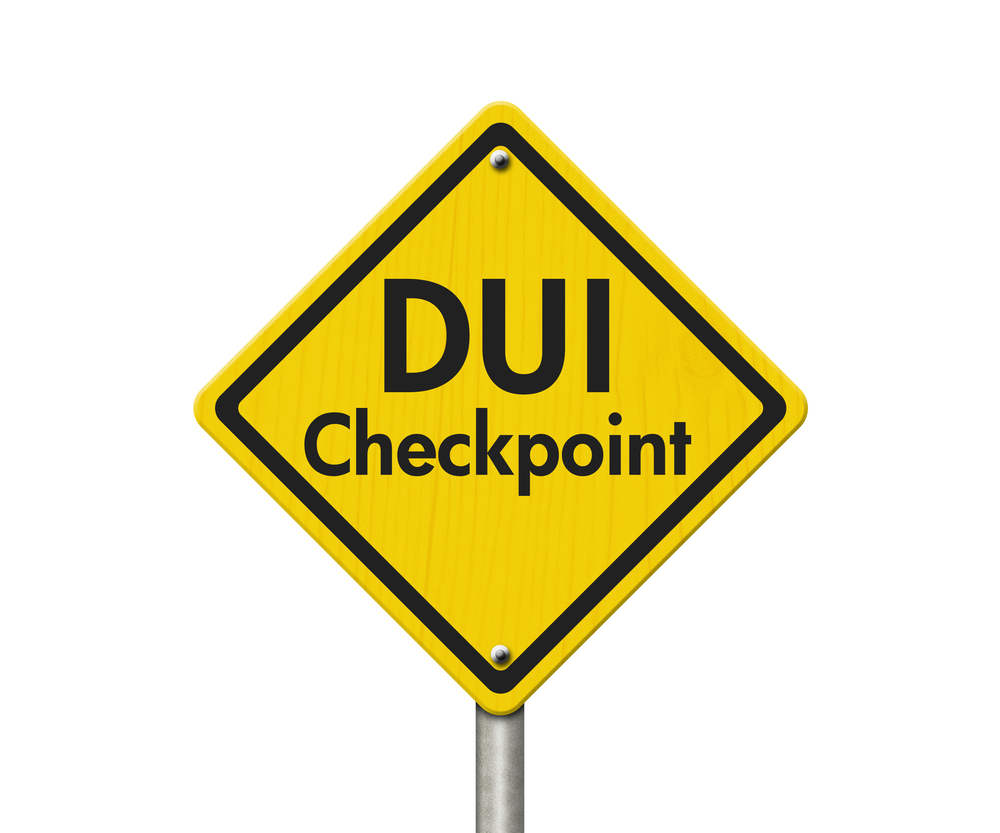Are DUI / OVI Checkpoints Legal in Ohio?
This is one the most often asked questions we get from clients and friends during the summer when DUI / OVI checkpoint season at its peak.
With OVI checkpoints around Columbus and Delaware County nearly every weekend, many can’t believe that random checkpoints could possibly be permitted under the Constitution.
What about reasonable suspicion?
Don’t the police need a warrant?
Do we live in a police state that can just stop anyone for any (or no) reason?
What happened to the Fourth Amendment?

Yes – The U.S. Supreme Court Says:
DUI Checkpoints Are Legal
In Michigan v. Sitz, 496 U.S. 444 (1990), the U.S. Supreme Court gave the go-ahead for police stations around the country to run DUI checkpoints permissible under the U.S. Constitution.
In finding in favor of the checkpoints, the Supreme Court balanced “the state’s interest in preventing accidents caused by drunk drivers, the effectiveness of sobriety checkpoints in achieving that goal, and the level of intrusion on an individual’s privacy caused by the checkpoints.”
It found that the state’s interest in preventing drunken driving outweighed the degree of intrusion upon individual drivers who are briefly stopped.
Where Can OVI Checkpoints be Held?
Ohio State Highway Patrol
explains that first requirement for establishing an OVI checkpoint is that the location must have a long term history of alcohol-related crashes and/or incidents of impaired driving. In other words, the checkpoint must be somewhere with a long history of accidents and OVI arrests.
What Advance Notice is Required for an OVI Checkpoint?
About a week before the checkpoint, the Ohio State Highway Patrol gives public notice is given that the checkpoint will be established. They just must give the general date, time, and location for the event – not the exact location. A few hours before the checkpoint, a second advisory notice is announced by the Highway Patrol telling the exact location and time.
What Does an Ohio OVI Checkpoint Look Like?
The Ohio State Highway Patrol will put up large reflective signs on the side of the road in advance of the actual checkpoint. Marked police vehicles are parked at these signs as you approach the checkpoint. At this point, if a driver doesn’t want to go through the checkpoint, they can turn around – if they can do so legally (see below).
Further in, a second “Sobriety Checkpoint Ahead Sign” is placed at the beginning of the lane of traffic cones marking the boundaries of the checkpoint. The area is lit by portable lights, flares and the emergency lights of police cars parked around the zone.
Can I Turn Around to Avoid the OVI Checkpoint?
Yes – if you can turn around legally. If you can legally do a U-Turn, for example, then you are within your rights to turn around and the police cannot pull you over for performing a legal traffic maneuver.
However, most OVI checkpoints are conveniently located in places that do not allow U-Turns or where there is no place to legally turn around to avoid the checkpoint.
What’s more, if you are spotted turning around to avoid a checkpoint, it may arise suspicion. If an officer follows you and observes you committing even a minor traffic violation (e.g. failure to signal, etc.), the officer may opt to pull you over to investigate further.
Is Every Car Stopped at the Checkpoint?
Not usually. As you enter the checkpoint zone, your car will either be stopped or signaled to go through. Officers cannot decide on a whim which car to stop – there must be some standard method to determine which cars are stopped. The court requires that the pattern of stops must be “uniformly random” – e.g. stopping every third car.
What Are Ohio Officers Looking For at an OVI Checkpoint?
When a car is stopped, officers are looking for “articulable signs of alcohol impairment” – bloodshot eyes, slurred speech, smell of alcohol, etc. If the officer suspects any impairment, you would be detained and screened further for OVI with field sobriety tests.
If you believe your rights have been violated or received a citation as the result of an OVI checkpoint, contact our Columbus DUI attorneys for specific questions about your individual case – (614) 361-2804.



